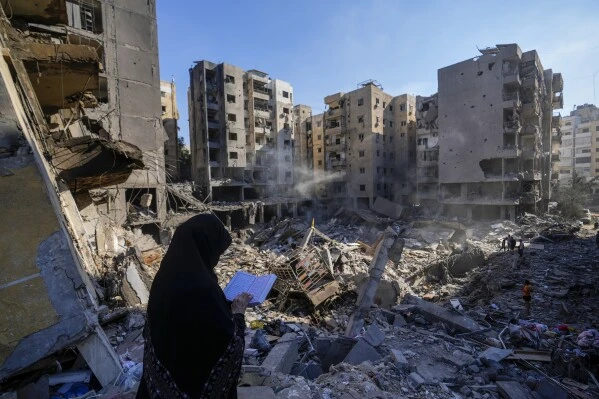7 Hezbollah Leaders’ Killings in 7 Days

Stay tuned with 24 News HD Android App

The recent escalation of violence in the Middle East has raised alarming concerns globally. Israel's targeted killings of seven high-ranking Hezbollah officials, including leader Hassan Nasrallah, have sparked fears of a wider conflict. This aggressive campaign has resulted in the deaths of approximately 60,000 innocent Muslims, injured 120,000, and displaced 1.2 million people. The international community's tepid response has emboldened Israel's brutal actions, perpetuating ethnic cleansing and genocide.
Among the top 7 Hezbollah leaders who have been assassinated by target killing in the last 7 days include Hassan Nasrallah, Hezbollah leader since 1992, Nabil Kaouk, deputy head of Hezbollah's Central Council, Ibrahim Akil, top commander of the Radwan Forces, Ahmad Wehbe, commander of the Radwan Forces, Ali Karaki, southern front leader, Mohammad Surour, head of Hezbollah's drone unit, and Ibrahim Kobeissi, who led Hezbollah's missile unit.
Israel's actions are driven by Zionist ambitions, seeking to expand its territory and dominate the region. This ideology has fueled Israel's aggressive expansionism, displacing Palestinians and violating international law. The international community's inaction has enabled Israel's actions, perpetuating a cycle of violence.
The conflict between Israel and Hezbollah dates back to the 1980s, with Hezbollah's formation as a response to Israel's occupation of southern Lebanon. Since then, the two entities have engaged in multiple wars, including the 2006 Lebanon War. Israel's actions have been criticized for violating international law, including targeted killings of civilian leaders, disproportionate use of force, and collective punishment of Lebanese civilians.
The conflict has resulted in 60,000 innocent Muslims killed, 120,000 injured, and 1.2 million displaced. The escalation risks regional instability, global jihadist movements exploiting the power vacuum, and increased tensions between Israel and Iran.
Israel's draconian face has been exposed, revealing a regime that prioritizes territorial expansion over human life. The international community must condemn Israel's actions, demand an immediate ceasefire, support diplomatic efforts for a lasting peace, and address humanitarian crises.
Diplomatic efforts should encourage negotiations between Israel, Palestinians and Hezbollah. Humanitarian aid should be provided to affected civilians, and international intervention through peacekeeping forces should be considered. Economic sanctions should be imposed on Israel to pressure them to cease their aggressive actions which is continuing since last year never ending to date.
The situation demands immediate attention, and the world cannot afford another devastating conflict. Collective action is necessary to prevent catastrophe. The targeted killings of Hezbollah leaders by Israel are a grave concern that might Ignite a global fire.
The international community must intervene to prevent further escalation, ethnic cleansing, and genocide. A collective response is necessary to ensure regional stability and global security. Recommendations include diplomatic efforts, humanitarian aid, international intervention, and economic sanctions all failed but must be reinforced with sincerity and purpose
The conflict has significant implications, not only in the Middle East but also in the entire globe ups, escalating tensions between Israel and Lebanon amidst the Palestinian crisis, and potentially spreading conflict to neighbouring countries and ultimately the world will be on the verge of a third world war.
Israel's actions have been condemned by human rights organizations, with Amnesty International accusing Israel of "war crimes" and "crimes against humanity." The United Nations has criticized Israel's actions, just symbolically calling for an immediate ceasefire.
In conclusion, Israel's Zionist ambitions and draconian face have sparked a devastating conflict. The international community must intervene to prevent further escalation, ethnic cleansing, and genocide of innocent Muslims of Palestine and neighbouring regions like Lebanon. Collective action is necessary to ensure regional stability and global security.
The world cannot afford another devastating conflict; immediate attention is necessary. The humanitarian crisis demands an urgent response, and economic sanctions should be imposed on Israel. Diplomatic efforts must prioritize negotiations between Israel, Palestine and Hezbollah.
Only through collective action can we prevent catastrophe and ensure peace.
